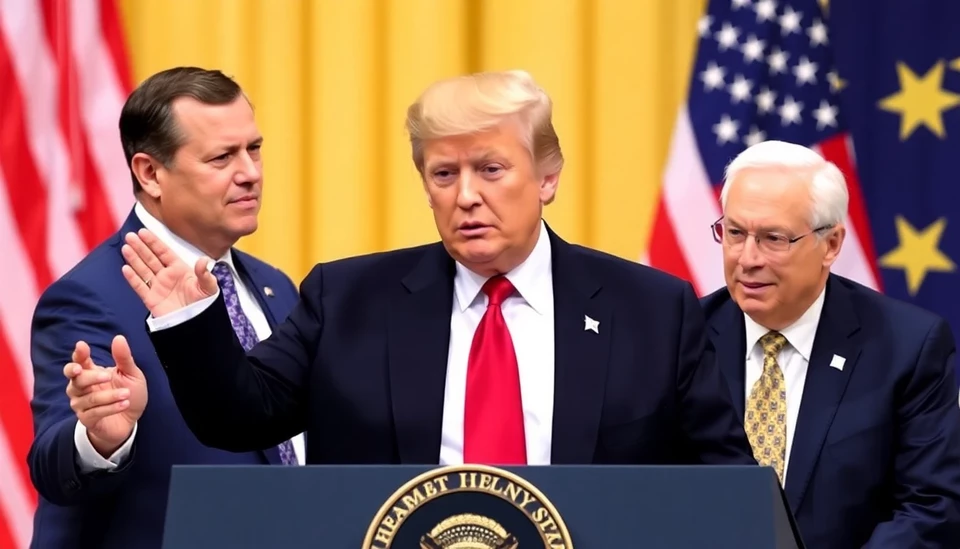
In a surprising shift in his economic strategy, former President Donald Trump has recently expressed willingness to reduce tariffs under certain conditions, particularly if faced with "phenomenal offers" from trading partners. This statement marks a notable departure from his previous hardline stance on tariffs, which often emphasized protectionism and economic nationalism.
During a recent interview, Trump stated that he is open to negotiating better terms in trade agreements that could benefit the United States significantly. He highlighted that if other countries are able to provide outstanding deals that would bolster American exports and create jobs domestically, he would consider adjusting existing tariffs that have been a source of contention in international trade discussions.
Trump's remarks come at a time when the global economy is navigating through turbulent waters, with supply chain disruptions and inflation impacting various sectors. By signaling a potential shift to a more flexible trade approach, Trump may be attempting to reposition himself in the economic landscape, especially as he looks toward future political endeavors.
Economic analysts have noted that Trump’s potential willingness to negotiate tariffs could stimulate fresh dialogues with key international partners. This could lead to a more collaborative trade environment, contrasting sharply with the transactional approach he previously championed, which often resulted in strained international relations and trade wars.
The former President has not specified which tariffs he might be willing to reduce or on which products. However, his emphasis on “phenomenal offers” suggests he is looking for significant concessions or advantages before agreeing to any changes. This could include favorable terms for U.S. agricultural exports or reductions in imported goods that significantly impact American consumers.
As Trump navigates this new economic rhetoric, it remains to be seen how his current stance on tariffs will resonate with both his base and broader American voters. Observers highlight that any real progress in trade negotiations could depend heavily on the responses from other countries to his overtures, particularly from major trading partners like China, Canada, and the European Union.
In conclusion, Trump’s openness to tariff reductions for exceptional trade proposals could lead to a transformative moment in U.S. trade policy. As discussions evolve, stakeholders across various industries will be closely monitoring the potential implications for the economy.
#Trump #TradePolicy #Tariffs #EconomicStrategy #GlobalTrade
Author: Daniel Foster




